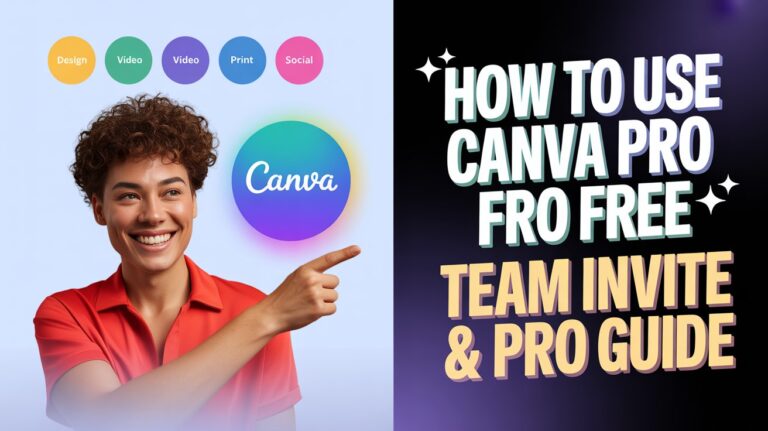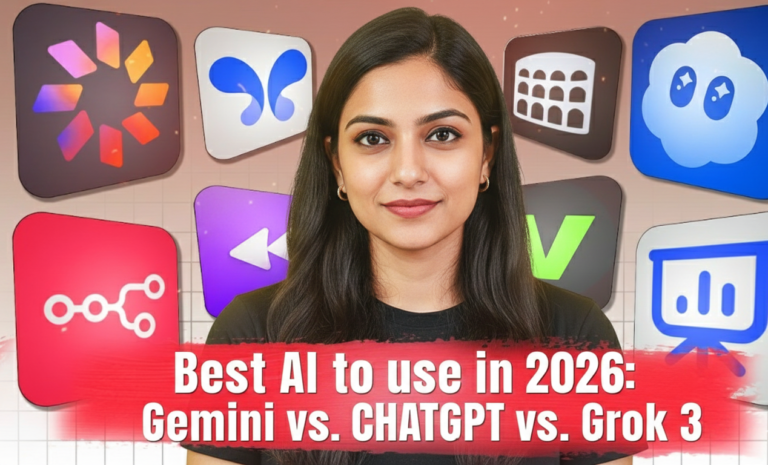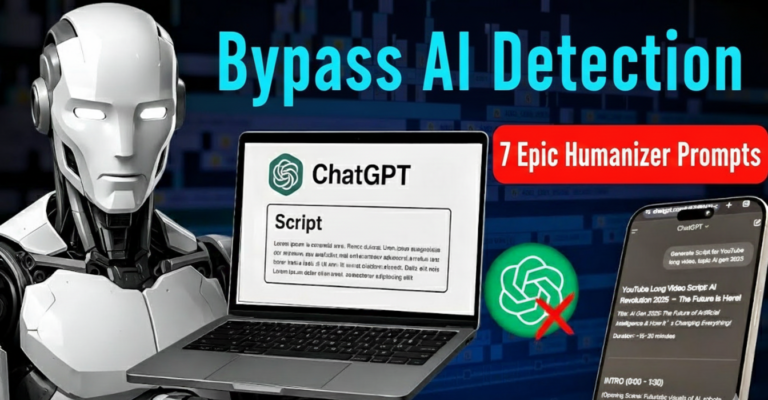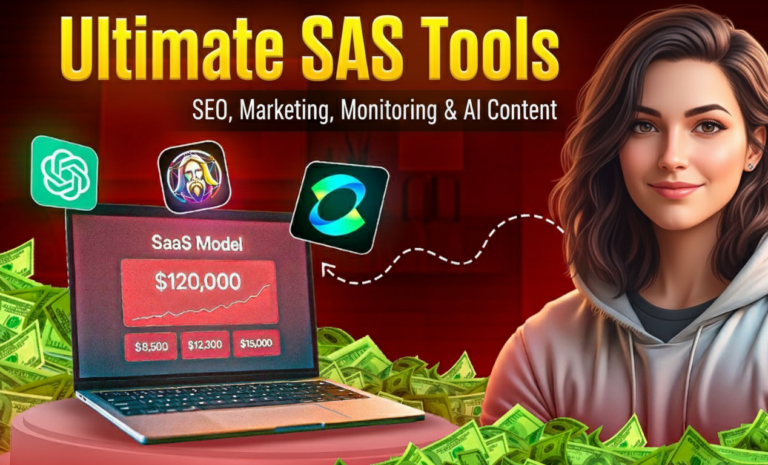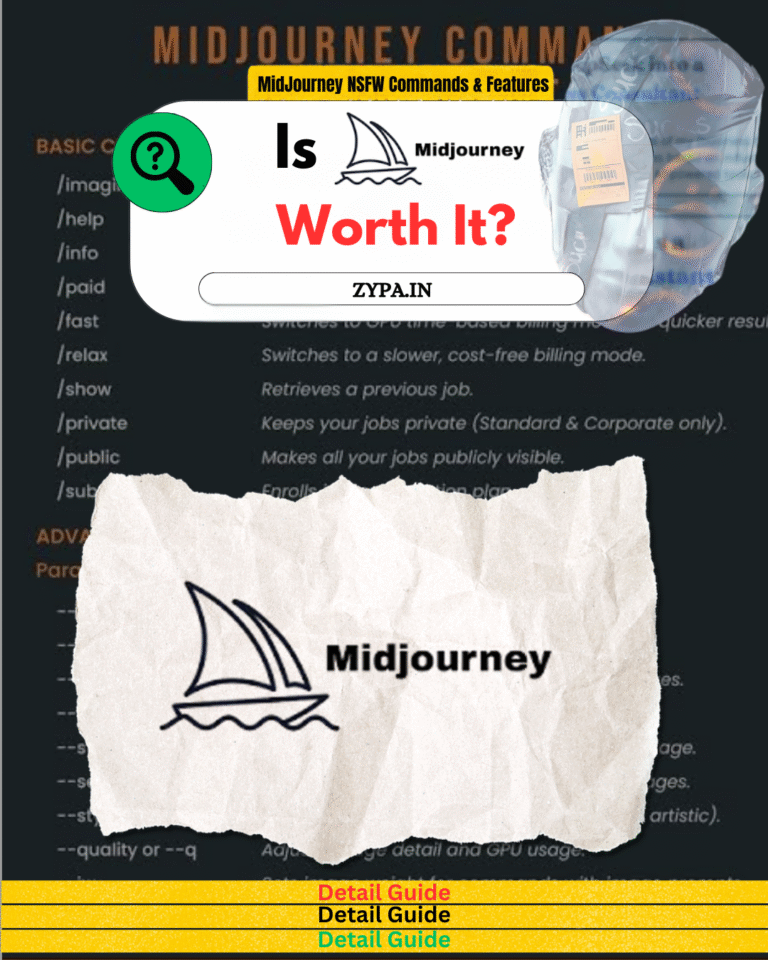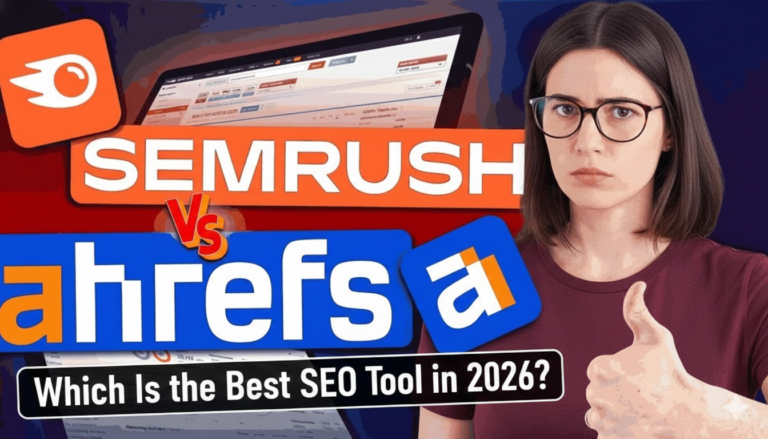Recent studies show that 85% of jobs will be transformed by AI by 2028, yet most professionals remain unprepared for this seismic shift. While artificial intelligence disrupts every industry from e-commerce to education, a new class of winners is emerging—those who understand how to leverage AI as their competitive advantage rather than fear it as their replacement. In this comprehensive guide, I’ll reveal the five critical strategies that will help you not just survive, but dominate in the AI era because the AI revolution isn’t coming—it’s already here.
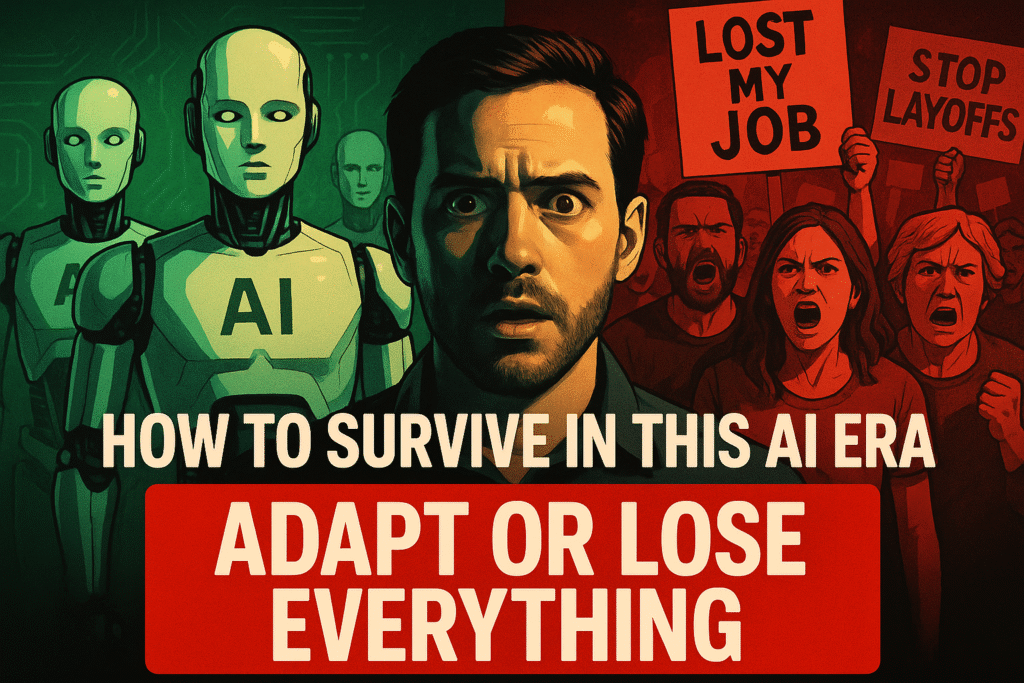
The Learning Imperative → Why Human Skills Still Matter Most
Master the Fundamentals First
The biggest misconception about succeeding in the AI era is that you can skip learning fundamentals and rely entirely on AI tools. This couldn’t be further from the truth. Whether you’re entering web development, data science, or any other field, you must learn from scratch as a human being.
Here’s the reality → AI & future of work dynamics show that only 10% of people are saying ‘I don’t need to learn anymore, AI will do it for me.’
This mindset is career suicide. If you try to build a Facebook-level website using only AI without understanding the underlying principles, you’ll inevitably get stuck during deployment, scalability, or debugging phases.
The Human-AI Synergy Advantage
When you develop AI skills alongside your core competencies, you create an unbeatable combination. Think of it this way → if you learn web development from scratch, you can then use AI to create next-level projects. If you master data science fundamentals, you can write better prompts and solve more complex problems with AI assistance.
Key Learning Strategy →
- Dedicate 5-6 hours daily to fundamental learning
- Allocate separate time for AI-assisted project building
- Maintain the understanding that serious projects require human oversight
- Never rely on ‘vibe coding‘ for production-level applications
Leverage ChatGPT as Your Daily Learning Companion
Make AI Your Personal Mentor
The most accessible and arguably best AI competitive advantage tool available today is ChatGPT. Yet most people dramatically underutilize it. Here’s how to change that →
Daily Integration Strategy →
- Install the ChatGPT mobile app and use voice features
- Exhaust your free daily limits – if you’re not hitting the 24-hour reset limit, you’re underutilizing
- Multitask with AI learning – listen to responses while doing routine tasks like cleaning, cooking, or commuting
- Ask follow-up questions to deepen understanding
Practical Implementation Example
Instead of passive scrolling during downtime, engage ChatGPT with questions like →
- ‘Will Python be relevant in the next five years?’
- ‘Explain the best career transition strategy for my situation’
- ‘Help me understand complex concepts in [your field]’
Use the read-aloud feature to consume AI-generated insights while performing other activities. This compound learning approach can dramatically accelerate your knowledge acquisition.
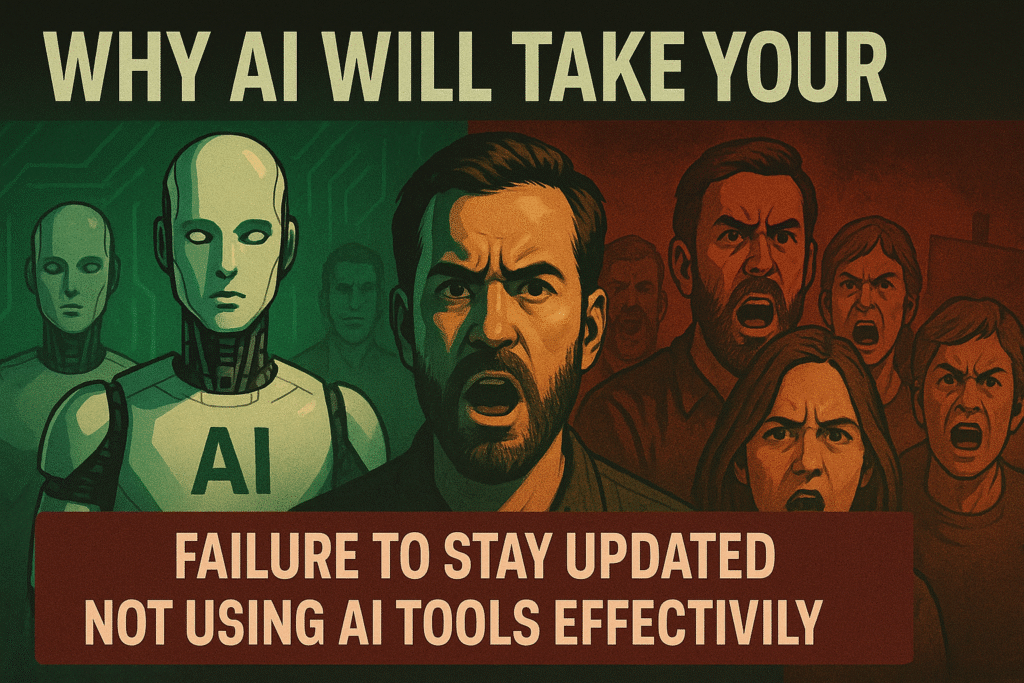
Choose Speed and Focus → The Domain Selection Strategy
Pick Your Lane and Accelerate
Success in the AI era requires strategic focus combined with rapid execution. Here’s the framework →
- Select a specific domain (web development, data science, digital marketing, etc.)
- Prioritize speed over perfection in initial projects
- Target low-hanging fruit – high-impact activities that are relatively easy to execute
The WordPress Analogy
Just as successful e-commerce entrepreneurs use WooCommerce instead of building everything from scratch, you should leverage existing AI tools and platforms to accelerate your progress. The goal is to focus on business logic and value creation, not reinventing the wheel.
For E-commerce Success →
- Use AI marketing tools like Omnisend for automated email campaigns
- Implement AI-powered product recommendations
- Leverage AI for customer segmentation and personalization
This approach allows you to achieve results quickly while building confidence and momentum for more complex projects.
Build Your Own AI Tools and Solutions
Solve Your Problems First
The most successful professionals in the AI & future of work landscape are those who create their own AI solutions. Here’s your roadmap →
- Identify a personal problem you want to solve
- Use your creative human mind to design a solution
- Build an AI-powered tool to address this problem
- Scale the solution to help others with similar challenges
Resume Revolution Strategy
Your resume must prominently feature AI-related projects and experiences. This isn’t about lying—it’s about genuinely integrating AI into your work and showcasing these projects effectively.
Resume Enhancement Tips →
- Create unique AI-powered projects (avoid generic to-do lists and Snake games)
- Position your most innovative AI project at the top of your GitHub profile
- Demonstrate real-world problem-solving with AI tools
- Show measurable impact and results from your AI implementations
Understanding AI’s Real Limitations
AI Is Not There Yet (And Why That’s Good News)
The fifth and most crucial point → AI is not the superhuman entity it’s often portrayed to be.
This limitation is actually your opportunity for AI competitive advantage.
Current AI Limitations →
- Memory Constraints → AI has severely limited context windows. You can easily exhaust an AI’s conversational memory by asking continuous questions, unlike humans who can remember experiences from decades ago with vivid detail.
- Reasoning Simulation → AI doesn’t truly reason—it simulates reasoning based on training data patterns. It can provide incorrect information, misunderstand problems, or waste your time with irrelevant solutions.
- Real-World Problem Solving → AI excels at information processing and cross-domain knowledge synthesis, but humans excel at →
- Creative problem-solving
- Deep contextual reasoning
- Real-world application and implementation
- Understanding nuanced business requirements
The Strategic Advantage
This gap between AI capabilities and human intelligence is where your AI skills development strategy should focus. Use AI as a powerful tool for →
- Speed → Rapid information processing and content generation
- Breadth → Cross-domain knowledge synthesis
- Automation → Repetitive task handling
But rely on your human capabilities for →
- Strategic thinking and business logic
- Creative problem identification and solution design
- Quality control and critical evaluation
- Real-world implementation and troubleshooting
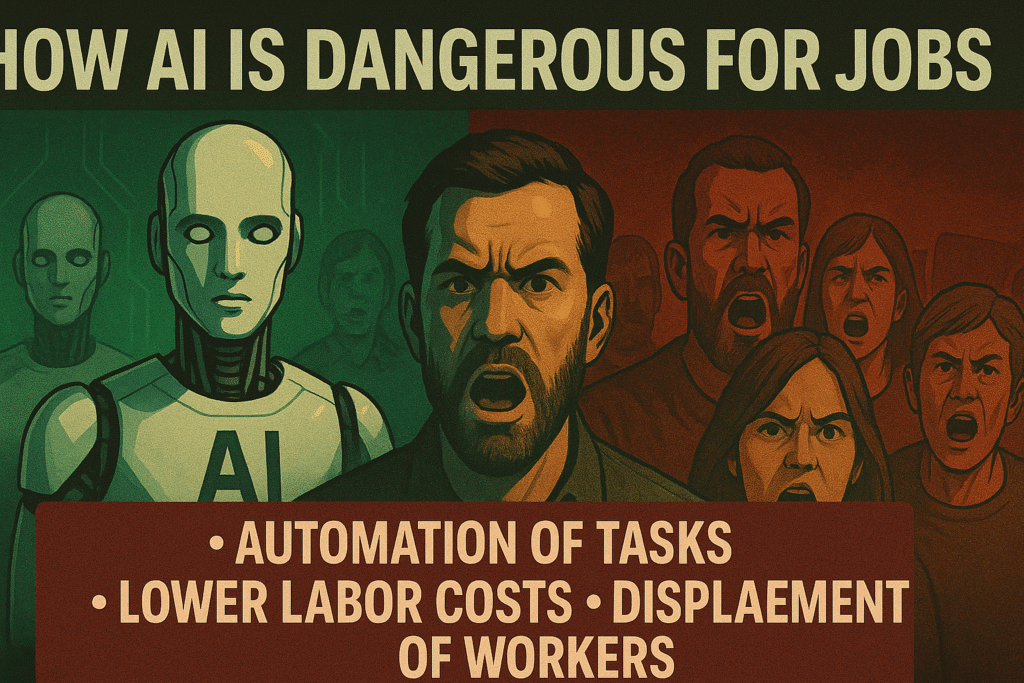
The Future Belongs to AI-Human Collaboration
Mindset Shift → From Fear to Leverage
The key to thriving in the AI era isn’t to fear job displacement—it’s to position yourself as someone who benefits from AI advancement. History shows us that major technological shifts like the Industrial Revolution created both winners and losers. The winners were those who adapted and leveraged new technologies to 10x their capabilities.
Your Action Plan →
- Maintain continuous learning in your chosen field
- Use AI tools daily for productivity and skill enhancement
- Build AI-enhanced projects that showcase your capabilities
- Develop unique solutions that solve real problems
- Always remember →–AI is just a tool to help you level up
How AI Can Replace Humans: Understanding the Scope and Implications
Artificial Intelligence has rapidly evolved from a futuristic concept to a present-day reality that’s transforming industries and reshaping the job market. While the idea of AI replacing humans often sparks debate, understanding where and how this replacement occurs provides valuable insights into our technological future.
Current Areas of Human Replacement
Manufacturing and Production
AI-powered robotics has already made significant inroads in manufacturing sectors. Automated assembly lines now perform tasks with greater precision and consistency than human workers. These systems can operate 24/7 without fatigue, reducing production costs and minimizing errors. Car manufacturers like Tesla and Toyota extensively use robotic systems for welding, painting, and assembly processes that were once exclusively human domains.
Data Analysis and Processing
AI excels at processing vast amounts of information at unprecedented speeds. Financial institutions now rely on algorithmic trading systems that can analyze market conditions and execute trades faster than any human trader. Similarly, AI systems in healthcare can review thousands of medical images to detect anomalies, often with higher accuracy rates than experienced radiologists.
Customer Service and Support
Chatbots and virtual assistants have become sophisticated enough to handle routine customer inquiries without human intervention. Companies like Amazon and Apple have deployed AI systems that can understand natural language, provide personalized responses, and resolve common issues efficiently, reducing the need for large customer service teams.
Emerging Replacement Opportunities
Transportation Industry
Autonomous vehicles represent one of the most visible examples of AI potentially replacing human drivers. Self-driving technology promises to revolutionize not just personal transportation but entire industries built around human drivers, including trucking, taxi services, and delivery operations.
Content Creation and Media
AI tools can now generate articles, create artwork, compose music, and even produce videos. While these systems currently assist rather than replace creative professionals, their capabilities continue advancing rapidly, suggesting potential displacement in content-heavy industries.
Professional Services
Legal research, tax preparation, and basic accounting tasks are increasingly handled by AI systems. These tools can review contracts, identify relevant case law, and process financial documents with remarkable efficiency, potentially reducing demand for entry-level positions in these fields.
Limitations and Human Advantages
Emotional Intelligence and Creativity
Despite technological advances, AI struggles with genuine emotional understanding and creative problem-solving that requires human intuition. Jobs requiring empathy, complex interpersonal relationships, and innovative thinking remain largely human domains.
Adaptability and Context Understanding
Humans excel at adapting to unexpected situations and understanding nuanced contexts that AI systems find challenging. This flexibility makes humans irreplaceable in roles requiring quick adaptation to changing circumstances.
Ethical Decision-Making
Complex moral and ethical decisions often require human judgment that considers cultural, social, and individual factors beyond algorithmic processing capabilities.
The Path Forward
Rather than complete replacement, the future likely holds a collaborative model where AI handles routine, data-intensive tasks while humans focus on strategic thinking, relationship building, and creative problem-solving. This evolution demands continuous learning and skill development to remain relevant in an AI-enhanced workplace.
The key lies not in competing with AI but in understanding how to work alongside it effectively. As AI continues advancing, humans must adapt by developing skills that complement rather than compete with artificial intelligence, ensuring mutual benefit rather than replacement.
5 Real-Life Examples: AI’s Impact on the Future of Work
The AI era has fundamentally transformed how businesses operate and compete, creating new paradigms for the future of work. These case studies demonstrate how organizations leverage AI skills and gain AI competitive advantage in today’s rapidly evolving landscape.
1. Amazon’s Warehouse Revolution: Redefining the Era of Logistics
Amazon exemplifies how the AI era has revolutionized warehouse operations and the future of work in logistics. Their AI-powered robotic systems, including Kiva robots, have transformed traditional warehouse jobs while creating new opportunities for AI skills development.
The Transformation
Amazon’s warehouses now employ over 750,000 robots working alongside human employees. This AI competitive advantage has enabled 50% faster order processing and reduced operational costs by 20%. However, rather than eliminating jobs, Amazon has invested heavily in developing AI skills by programs, retraining 100,000+ employees for higher-skilled positions.
Future of Work Impact
The company’s “Upskilling 2025” initiative demonstrates how the AI era demands continuous AI skills development. Workers previously handling manual sorting now operate sophisticated AI systems, manage robotic fleets, and analyze performance data. This case shows how embracing this era creates AI competitive advantage while reshaping the future of work through strategic development in your AI skills.
2. JPMorgan Chase: Banking and Financial Services Evolution
JPMorgan Chase’s COIN (Contract Intelligence) platform represents a landmark achievement in the AI era of financial services, fundamentally altering the future of work in banking while establishing significant AI competitive advantage.
Revolutionary Implementation
COIN processes legal documents that previously required 360,000 hours of lawyer time annually, completing the work in seconds. This era innovation demonstrates how AI competitive advantage emerges through intelligent automation. The bank invested $11.5 billion in technology, prioritizing AI skills across all departments.
Workforce Transformation
Rather than eliminating positions, JPMorgan focused on development of AI skills, retraining legal professionals for complex advisory roles. The future of work in banking now emphasizes human-AI collaboration, where lawyers handle strategic negotiations while AI manages document analysis. This approach to this era creates sustainable AI competitive advantage through enhanced AI skills development initiatives.
3. Tesla’s Manufacturing: Production and Competitive Advantage
Tesla’s Gigafactories showcase how the AI era transforms manufacturing, creating unprecedented AI competitive advantage while redefining the future of work in automotive production through comprehensive development in AI skills.
AI-Driven Manufacturing
Tesla’s AI-powered production lines achieve 90% automation rates, establishing significant AI competitive advantage in the AI era. Their AI systems predict maintenance needs, optimize production schedules, and ensure quality control with minimal human intervention. This AI era approach to manufacturing demonstrates superior AI competitive advantage over traditional automakers.
Skills Revolution
Tesla’s AI skills development programs train workers to operate AI-controlled machinery, interpret machine learning outputs, and collaborate with robotic systems. The future of work at Tesla requires employees skilled in AI system management, data analysis, and human-machine collaboration. This comprehensive AI skills development approach ensures workers remain relevant in the AI era while maintaining Tesla’s AI competitive advantage.
4. Walmart’s Supply Chain: Retail Transformation
Walmart’s AI-driven supply chain optimization exemplifies how retail giants leverage the AI era to create AI competitive advantage while preparing their workforce for the future of work through strategic AI skills development.
Supply Chain Revolution
Walmart’s AI systems analyze 2.5 petabytes of data hourly, predicting demand patterns and optimizing inventory across 10,500+ stores. This AI era capability provides substantial AI competitive advantage, reducing inventory costs by 30% and improving product availability. The AI competitive advantage stems from superior demand forecasting and automated replenishment systems.
Workforce Evolution
Walmart invested $1 billion in AI skills development, training 1.5 million associates for the AI era. The future of work at Walmart now includes AI-assisted customer service, predictive analytics roles, and human-AI collaborative inventory management. Their AI skills development programs ensure employees can leverage AI tools effectively, maintaining Walmart’s AI competitive advantage in the competitive retail landscape.
5. Netflix’s Content Strategy: Entertainment and Personalization
Netflix demonstrates how the AI era transforms entertainment, creating AI competitive advantage through sophisticated personalization while reshaping the future of work in media through targeted AI skills development.
Content Intelligence
Netflix’s AI algorithms analyze viewing patterns of 230+ million subscribers, creating personalized experiences that generate 80% of viewer engagement. This AI era approach to content delivery provides significant AI competitive advantage, with personalization driving $1 billion annually in customer retention value.
Creative Workforce Transformation
Netflix’s AI skills development initiatives train content creators, data scientists, and marketing professionals to work with AI recommendation systems. The future of work in entertainment now requires understanding AI-driven audience insights, algorithmic content optimization, and data-informed creative decisions. Their comprehensive skills development programs ensure creative teams can leverage AI tools while maintaining Netflix’s AI competitive advantage in the streaming wars.
Strategic Implications for the AI Era
These case studies reveal that successful navigation of the AI era requires simultaneous investment in technology and AI skills development. Organizations achieving sustainable AI competitive advantage prioritize workforce transformation alongside technological implementation. The future of work demands continuous AI skills development, human-AI collaboration, and strategic thinking about how to leverage the AI era for competitive positioning.
The AI competitive advantage emerges not from replacing humans but from enhancing human capabilities through strategic AI skills development in the evolving AI era.
Conclusion → Your AI Era Success Blueprint
The AI era presents unprecedented opportunities for those who approach it strategically. Success isn’t about competing with AI—it’s about collaborating with it while maintaining your uniquely human advantages.
Remember that AI won’t take your job, but someone using AI effectively might.
The professionals who will dominate the next decade are those who combine deep domain expertise with AI leverage capabilities.
Start implementing these strategies today →
- Commit to daily AI tool usage and learning
- Begin building AI-enhanced projects in your field
- Focus on solving real problems with AI assistance
- Maintain the mindset that AI is your tool, not your replacement
The future belongs to those who act now. The question isn’t whether AI will reshape your industry—it’s whether you’ll be leading that transformation or watching from the sidelines. What’s your first step toward AI era success?
Ready to accelerate your career in the AI era? Subscribe to ZYPA to stay updated and to get wins.

